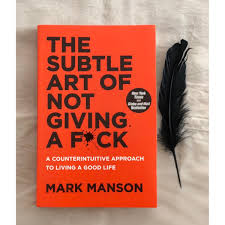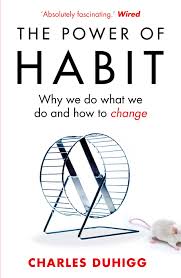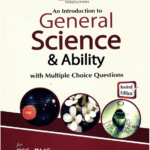Description
Mark Manson, an author and blogger, published his book “The Subtle Art of Not Giving a F*ck: A Counterintuitive Approach to Living a Good Life” in 2016. This is a self-help book that sets straight personal development and fulfillment in life using a no-nonsense approach, often with humor, but brought to the point.
He dismisses most traditional self-help advice by pointing out the value of embracing how hard life sometimes is, accepting limitations, and focusing on what really matters, rather than constantly seeking to be positive.
Key Concepts:
The central idea of the book is that life is bound to face some challenges, and instead of avoiding or pretending things, we should focus on the things worth being concerned with and forget about the ones that are not. Manson insists that mankind squanders its energy on things that do not effectively contribute much to their well-being and happiness, causing undue stress and dissatisfaction. In this regard, the book invites the reader to make conscious decisions about what is truly worth being cared for.
Main Ideas:
Choose What to Care About: Manson makes the point that we all only have so much time and energy, and we must wisely choose what to pay attention to or what to “give a f*ck” about. Not everything is worth an emotional investment, and it is imperative to concentrate on values that will be a means of well-being and purpose and not on societal expectations or superficial achievements.
It emphasizes the importance of suffering in life. Rather than avoiding it, it becomes a part of a person’s growth. What we suffer for defines our success and happiness, writes Manson. He says that the meaning of hardship determines happiness. A person can only be great if they were strong enough to find it.
LIMITATION AND RESPONSIBILITY: He also talks about the importance of acknowledging our limitations. Knowing that we are not in control of everything helps us assume responsibility for only what we can possibly control. He repeats that the first lesson toward changing and thus making life better is to own up to our mistakes or flaws.
Anti-Positive Culture: The book is also highly critical of the current self-help culture, that time and again tosses around the notion of the never-ending power of positivity. Manson labels this as unrealistic and unhelpful; life cannot be great all the time and sometimes “shit just happens.” And only by accepting this can a person feel true happiness rather than running from an idea of constant success and happiness.
What this book finally means is the power of a “no” to the things that don’t matter. Manson urges the readers to develop some boundaries and invest in any relationship, commitments, or goals that resonate with their values. Thus, the ability to say no to nonsensical distractions helps to concentrate on what actually fulfills people’s lives.
Death and Legacy: Manson maintains that even the thought of death can give life meaning. He challenges readers to think about what kind of legacy they wish to leave behind, and how to live life in line with more profound values. The finiteness of life puts matters into perspective and helps put first what truly matters.
Structure:
The book contains nine chapters that concern themselves with different aspects of life and self-improvement. The titles of some chapters include:
“What Not to Do”: This chapter explores the idea of caring less, focusing on what truly matters, and not to get caught up in meaningless achievement.
“Happiness is a Problem”: Manson rejects this notion that happiness should be a goal unto itself and maintains it is better defined as solving meaningful problems.
You Are Not Special”: Manson emphasizes the need for humility and holding on to no conception of personal entitlement as personal responsibility leads to a more balanced and meaningful life.
Themes:
Acceptance of Failure and Pain: The world is inherently hard and failure is an aspect of life. Manson would tell readers not to run away from these experiences, but to let them teach him.
Values and Priorities: This book teaches one the importance of values that are based on reality and lead to a meaningful life and not for some impractical goals or just to find external validation.
Personal Responsibility: According to Manson, we should take personal responsibility and should not engage ourselves in playing some Blame games with external factors if we want to achieve a peaceful life.
Significance
For example, “The Subtle Art of Not Giving a F*ck” became a bestseller for its refreshing take on self-help, as raw language and blunt approach resonate with readers who are tired of the conventional positivity. Manson’s candid, often humorous writing style connects with contemporary readers who appreciate a more realistic sometimes irreverent approach to self-improvement.
This book teaches you on how to focus on what matters, accept the inevitable hardships in life, and take charge by setting meaningful goals and relationships.










Reviews
There are no reviews yet.